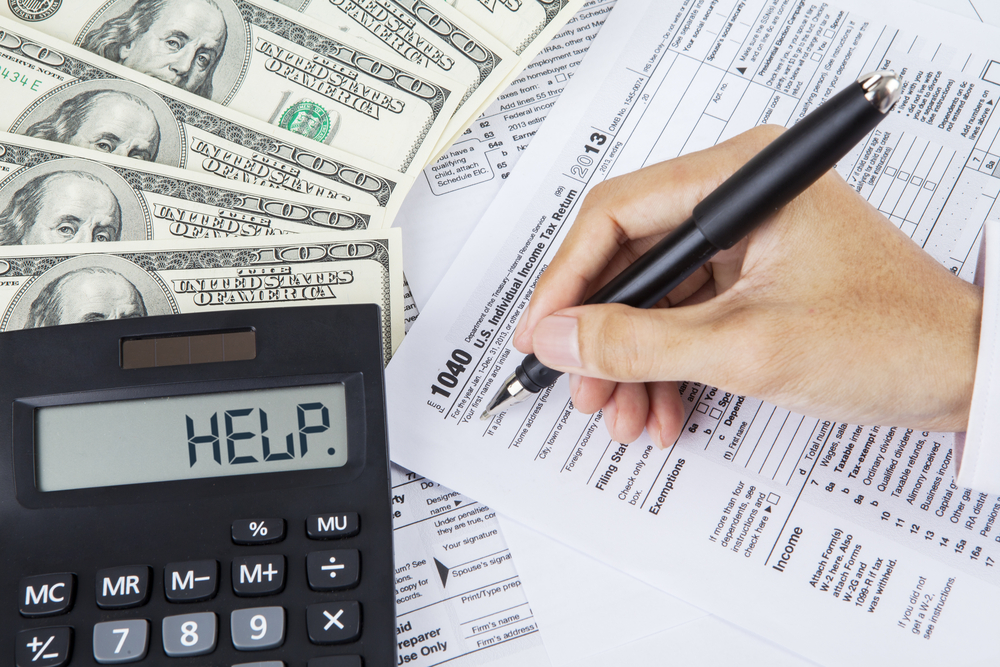Most Common Reasons People Fall Behind on Their Taxes
- Aug 29, 2022
 Taxes are such an ingrained part of our daily lives that, for some people, it can be difficult to imagine how anyone could fall behind on their taxes. They’ll ask questions like, “Don’t you have taxes withheld from your paychecks?” or “Why didn’t you just pay them when you filed your tax return?” These kinds of questions show a lack of understanding when it comes to the many circumstances that can cause a person to fall behind on their tax debt. It’s very uncommon for taxpayers to deliberately avoid paying taxes. More often than not, people fall behind for one of the following reasons.
Taxes are such an ingrained part of our daily lives that, for some people, it can be difficult to imagine how anyone could fall behind on their taxes. They’ll ask questions like, “Don’t you have taxes withheld from your paychecks?” or “Why didn’t you just pay them when you filed your tax return?” These kinds of questions show a lack of understanding when it comes to the many circumstances that can cause a person to fall behind on their tax debt. It’s very uncommon for taxpayers to deliberately avoid paying taxes. More often than not, people fall behind for one of the following reasons.
An Unexpectedly High Tax Bill
Some people get approximately the same results on their tax returns year after year. Their income doesn’t fluctuate, they don’t experience major life-changing circumstances, and so, they have a pretty good idea of what to expect come tax season. But then, a change to tax law that they weren’t aware of (or simply weren’t aware would affect them so drastically) ends up changing the way they’re taxed throughout the year. Suddenly, they find themselves owing thousands, and they don’t have the funds to pay that tax bill.
This happened to many taxpayers not too long ago, when the Tax Cuts and Jobs Act altered how taxes were withheld from paychecks. Those who were not aware of the change and, therefore, did not adjust their withholdings, found themselves scrambling to pay an unexpectedly high tax bill—so it’s more common than some people might think.
Lack of Funds
On a similar note, some people simply can’t find the funds to pay their taxes when they file their returns. Even if your tax liability isn’t unexpectedly high, your tax bill takes a back seat to food, rent or mortgage payments, and utility bills. These cash flow issues often arise due to extenuating circumstances, such as a death in the family, divorce, job loss, or illness.
Whether the cash flow troubles were sudden or gradual, finding yourself with a lack of funds is stressful enough; adding a tax bill to it can quickly cause a person to slip into debt with the IRS.
Forgetting to File a Return
Again, forgetting to file a tax return might seem impossible to some people, but it certainly does happen. Young adults who need to file for the first time, Americans working in other countries, and senior citizens may simply be unaware that they need to file a tax return at all. For example, many senior citizens who are on a fixed income are actually exempt from filing taxes. Perhaps a senior taxpayer went several years without being required to file taxes, but their income increased, and they now have to file. If they’re unaware of this situation, they might begin accruing tax debts without knowing about it.
Making Mistakes on Your Return
Perhaps you did file your return, and even paid what you thought you owed. However, the IRS soon caught several errors on your tax return that drastically increased what you owed. Now, not only do you owe more in taxes, but you owe late payment fees for the portion of your tax liability that you didn’t know you owed. IRS fees and interest can accumulate quite quickly, so those amounts do add up in a short amount of time, until the tax burden can become too heavy for the average person to bear.
Misunderstanding Quarterly Tax Payments
This problem is unique to those with untaxed sources of income—primarily, business owners, self-employed individuals, and landlords. The average income earner has taxes withheld from their paychecks, which generally prevents your tax debt from being very large at tax time. Business owners and others who receive income pre-tax, however, have to remember to pay those taxes themselves. If you’re a new business owner or just got your first renters in your first rental property, it can be easy to forget that you should be making quarterly estimated tax payments to the IRS.
These payments help those with pre-tax income sources to stay on top of their tax payments so that they’re not hit with an enormous tax bill when they file. But in addition to this, failing to pay a certain amount of your tax liability throughout the course of the year can result in underpayment penalties from the IRS. Again, these add up quickly, so the debt associated with not making quarterly tax payments can be quite large.
Whatever the reason, if you’ve fallen behind on your taxes, contact the IRS Advocates today. We’ll help you to apply for an IRS tax settlement plan and work on your behalf to get you out from under your tax debt, and back on track to financial freedom.
STOP THE IRS!
Settle for less & Protect your assets
Never Call the IRS without Speaking with our Pros First!